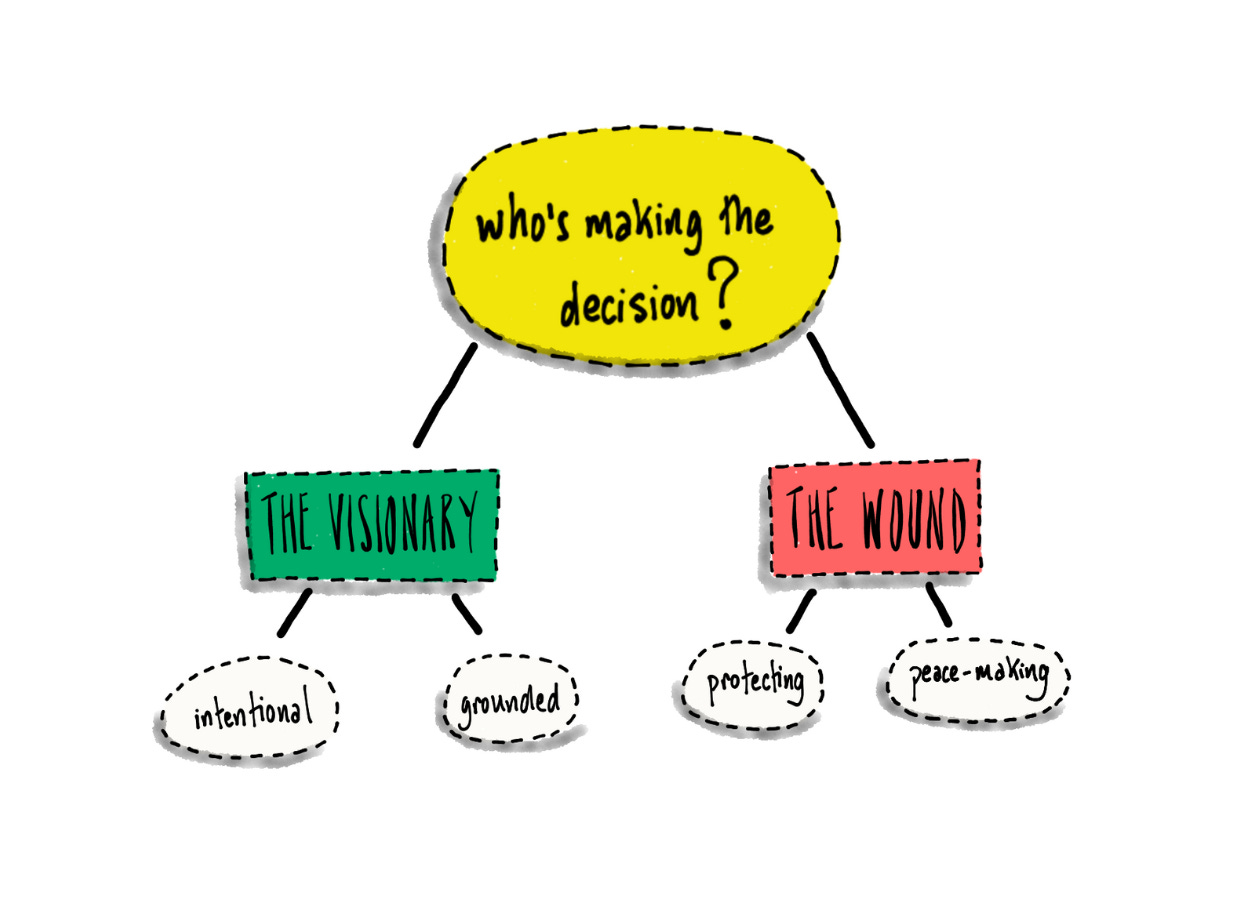The Boundaries We Don’t Know We’re Setting
And the parts of us that set them
For most of my adult life, I didn’t really think about boundaries.
Not consciously, anyway.
I thought I was being flexible.
Easy to work with.
Open-minded.
Helpful.
In reality, I was often being over-accommodating.
And underneath that was a part of me (let’s call him the Peacemaker) who just didn’t want to rock the boat.
This part got me far in life, especially in my earlier years building a business. Clients liked me. I was agreeable. Adaptable. I’d go the extra mile (then another one) because I thought that’s what being “good” looked like. What success required.
I used to believe the customer is always right.
Now I believe the customer isn’t always for me.
That shift didn’t happen overnight. It came through midlife friction; the kind that rubs away at your old stories until you’re forced to look beneath the surface.
Because at some point, I started noticing the cost of being everyone’s solution. The cost of not having clear boundaries. I felt drained. Resentful. Unclear about where my work ended and where someone else’s expectations began.
It wasn’t burnout. It was something quieter. More existential. A sense that my energy was leaking into places that weren’t mine to fix, carry, or manage.
This is the thing about boundaries: they don’t just arise from personal strength or professional strategy. They emerge from priorities.
And our priorities are shaped by parts of us: some conscious, some not.
The conscious parts are the ones we post about on LinkedIn: our values, our vision, our intentions to build work that matters and a life that feels aligned. These are the Self-led priorities, the ones that feel calm and clear when we speak them aloud.
But there are other parts too.
The ones shaped by childhood, past wounds, or older strategies that once protected us. The part that keeps saying yes so we’re not abandoned. The one that performs so we feel loved. The one that people-pleases because conflict still feels like danger.
In Internal Family Systems (IFS), we see the self as a system made up of many parts, each with its own role and logic. Some of them are visionaries. Some are exiles. Some are firefighters, rushing in to douse the emotional flames of discomfort.
And when those parts are the ones driving our decisions (especially in business) we often find ourselves in situations where our boundaries are porous or misaligned. We say yes to the wrong projects. We underprice. We overdeliver. We disappear when things get difficult.
Or we do the opposite; we build walls instead of bridges. We avoid vulnerability. We convince ourselves we have to do it alone.
This is particularly potent in midlife.
It’s the stage where we start to question the rules we’ve lived by.
Where we feel the pressure of time, not in a panicky way, but in a clarifying way.
We no longer want to waste energy chasing things that aren’t meant for us.
We want focus. Freedom. Meaning. But not the performance of meaning; the actual thing.
And so, boundaries become sacred.
Not just as defences, but as declarations.
This is what I protect now.
This is who I serve now.
This is what I will no longer sacrifice.
So if you’ve been feeling tension in your business or your life—maybe take a moment to ask:
What are the real priorities guiding my choices right now?
Which parts of me are setting those priorities?
And are they serving the future I want to move towards?
We can’t change what we don’t notice.
But when we do notice, we can start choosing again.
From clarity. From compassion. From self.
I’d love to know what this brings up for you.
Where are you noticing your own boundaries shifting—or asking to be redefined?



